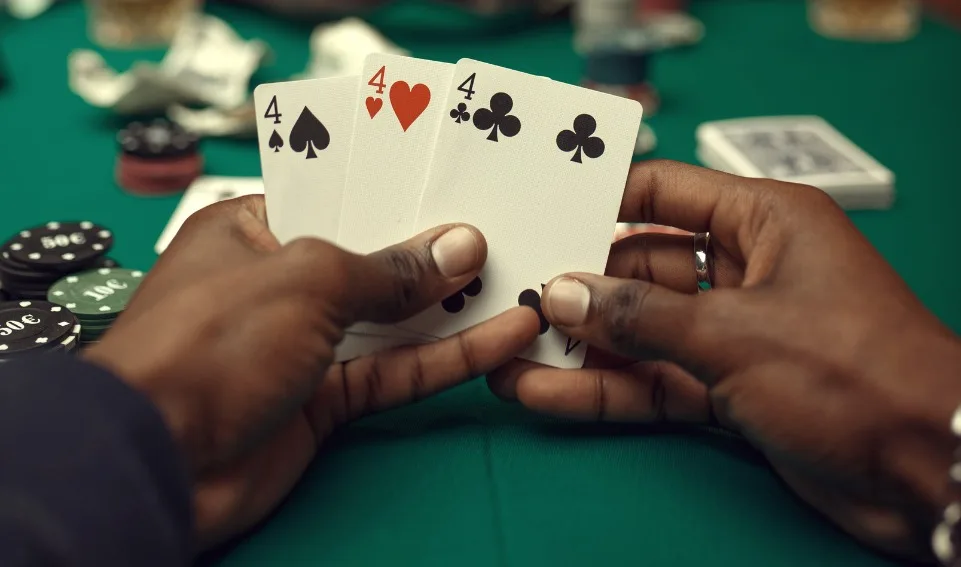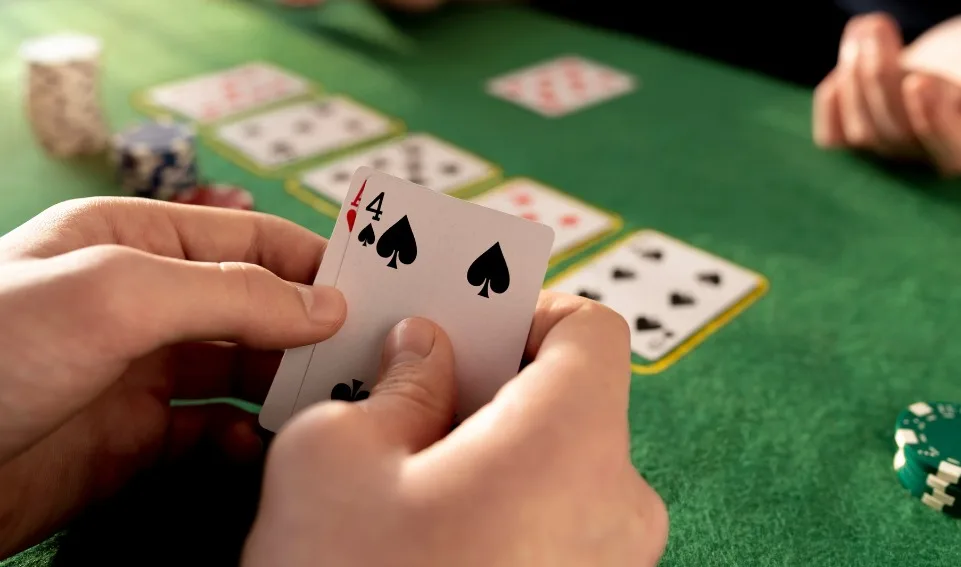You’re dealt your two cards. Now what?
That moment, before the flop even hits the table, can decide your entire hand. In Texas Hold’em, knowing whether to play, fold, raise, or slow down depends heavily on the strength of your starting hand. While the game unfolds over multiple streets, the smartest players know that most pots are won or lost before the flop.
Playing the right hands from the start gives you an edge — not just in chip stacks, but in table image and long-term results. Whether you’re playing at a local table or testing your skills through casino games that win real money, understanding starting hands is step one to success.
In this guide, we’ll break down the top-ranked hands in Texas Hold’em, when and how to play them, and common mistakes that cost new players valuable chips. If you’re serious about improving — whether on a home table or at the best online casino — this casino blog is your starting point for smarter play.
Understanding Starting Hands: The Basics
Before diving into which hands to play, it’s essential to understand what a starting hand is — and how its value changes depending on your position at the table.
What Are Hole Cards?
-
In Texas Hold’em, each player receives two private cards — called hole cards.
-
These cards are the foundation of your entire strategy, combined later with the five community cards on the board.
-
Your decision to play or fold starts here.
What Is Hand Strength?
-
Not all starting hands are created equal.
-
Hands like Pocket Aces (AA) or Ace-King suited (AKs) are statistically strong and win more often.
-
Others like 7-2 offsuit are considered the weakest — and should usually be folded.
Why Position Matters
Your seat at the table heavily influences the strength of your hand:
-
Early Position (EP): You act first, with less information — so only play premium hands here.
-
Middle Position (MP): You see a bit more of the table, allowing slightly looser play.
-
Late Position (LP): You act last, giving you more control — ideal for suited connectors, bluffs, or wider ranges.
In fast-paced internet casino games for real money, understanding position is critical. Acting last gives you a huge informational advantage and can help you win real money online with hands you'd normally fold in early spots.
Mastering the basics of starting hands and position sets you up for long-term success — and this casino blog will guide you through what comes next: the top hands and how to use them.

Top 10 Starting Hands in Texas Hold’em (Ranked)
Not all poker hands are created equal. While luck always plays a part, starting with statistically strong hole cards increases your chances of dominating the table — especially in casino games that win real money. Whether you're grinding tournaments or jumping into quick cash games at the best online casino, these are the hands you should prioritise.
1. Pocket Aces (AA)
-
The best possible starting hand in Hold’em.
-
Always raise or re-raise preflop — slow-playing this can be a mistake unless you're trapping a hyper-aggressive player.
2. Pocket Kings (KK)
-
Another powerhouse hand.
-
The only real threat is AA, but still worth pushing hard preflop.
3. Pocket Queens (QQ)
-
Strong, but proceed with caution if you’re facing heavy action and an Ace or King hits the flop.
4. Ace-King Suited (AKs)
-
High card strength with nut flush potential.
-
Known as “Big Slick,” it’s one of the best drawing hands.
5. Pocket Jacks (JJ)
-
Strong, but vulnerable to overcards.
-
Raise in early position, but be prepared to fold to re-raises in tight games.
6. Ace-Queen Suited (AQs)
-
Good equity hand with potential flush and straight draws.
-
Be aggressive in late position, cautious if raised early.
7. King-Queen Suited (KQs)
-
Great combo of high card strength and suited flexibility.
-
Profitable in late position, especially in multiway pots.
8. Pocket Tens (TT)
-
Solid, but don’t overplay it on high-card flops.
-
Excellent for open-raising or defending blinds.
9. Ace-Jack Suited (AJs)
-
Playable with potential, but often dominated by AQ or AK.
-
Ideal for late-position raises or defending against steals.
10. King-Jack Suited (KJs)
-
Strong but tricky — you’ll win big or lose big depending on the flop.
-
Use position wisely and avoid all-ins with this hand unless short-stacked.
Learning how and when to play these hands is just as important as knowing what to play. Practice them in casino blog freerolls or test them in top-rated casino sites offering real cash tables. In online games where you can win real money online, mastering starting hands is your first weapon at the table.
Hands You Think Are Good (But Aren’t Always)
Some poker hands look tempting — even exciting — but in reality, they’re troublemakers. New players often overvalue certain hands, leading to big losses. If you’re playing at a free online casino or competing for cash at casinos online, understanding these trap hands can save you chips and frustration.
Common Trap Hands:
-
Ace-Ten Offsuit (A♠10♦)
-
Looks strong, but can be dominated by hands like AQ, AK, or AJ.
-
Avoid calling large preflop raises with this unless you're in late position.
-
King-Ten Suited (K♥10♥)
-
Suited and face cards — what could go wrong? A lot.
-
Dominated by KQ, AK, and even QJ when straights are involved.
-
Queen-Jack Offsuit (Q♣J♦)
-
Pretty, but weak in the early position.
-
Good for bluffing but risky without proper reads.
-
Low Pocket Pairs (22–66)
-
Fun to see preflop, but unless you hit a set on the flop, they quickly become worthless.
-
Play them only in multiway pots or when you can enter cheaply.
These hands might win you pots occasionally, but overplaying them — especially out of position — is a mistake. Use casino online bonus offers or free tables to practice identifying and folding these hands before they cost you real money.
Suited Connectors and Pocket Pairs: Hidden Value
Not all winning hands look strong at first glance. Some of the most profitable starting hands in Texas Hold’em are the sneaky ones — suited connectors and small to mid pocket pairs. They may not dominate preflop, but they can help you win big when they hit — especially in casino games that win real money.
Suited Connectors (e.g., 9♠8♠, 7♥6♥)
-
These hands shine in multiway pots where you can build a big stack quietly.
-
They give you the chance to hit straights, flushes, or both — hands that can crack even pocket aces.
-
Best played in late position with deep stacks. Fold them if you’re short-stacked or facing a big raise.
Small & Mid Pocket Pairs (e.g., 6♣6♦, 8♠8♠)
-
Their value comes from hitting a set (three of a kind) on the flop.
-
This happens roughly 1 in 8 times — so you’ll need to play them with patience.
-
Don’t chase them out of position unless the entry cost is low.
These hands thrive on implied odds — meaning when they hit, you win big. Test and refine your strategy using tools or games offered in your favourite casino blog, or experiment with them at top-rated casino sites before putting serious money on the line.
Final Tips: Know When to Fold, Raise, or Push
Even the best starting hand can go wrong if you play it poorly. Pocket Aces can lose. Suited connectors can backfire. The key isn’t just knowing what to play — it’s knowing how and when.
-
Don’t fall in love with pretty cards. A hand like King-Queen suited looks great, but can be crushed by stronger holdings.
-
Always factor in your position, stack size, and the tendencies of your opponents before deciding to fold, raise, or go all-in.
-
Strong hands give you an edge — but discipline, patience, and timing turn that edge into profit.
If you're serious about winning, apply these tips consistently — whether you’re playing casually or grinding to win real money online at your favourite tables.
FAQs
Which hand is stronger, AAAKK or AAA99?
AAAKK is stonger as it's a full house with kings over nines.
What is the 72 rule in poker?
It's an unsaid rule on the fun side where players agree to pay a bonus to anyone who wins a hand with 7-2, the weakest cards.
Is 7/8/9-10 ace a straight?
No, a straight must be in order, you need a J instead of Ace for a 7-8-9-10-J straight
What is the most winning hand in Texas Hold'em?
Pocket Aces (A-A) give the most winning odds.

Casino
Play the Best Real Money Online Casino Sites in 2026
Jan 6, 2026

Slots
Best Frankenstein Slots Online: Top 10 Games for Horror Slot Fans
Dec 8, 2025

Poker
Best Strategies for Winning Bomb Pots in Live & Online Poker
Dec 12, 2025



